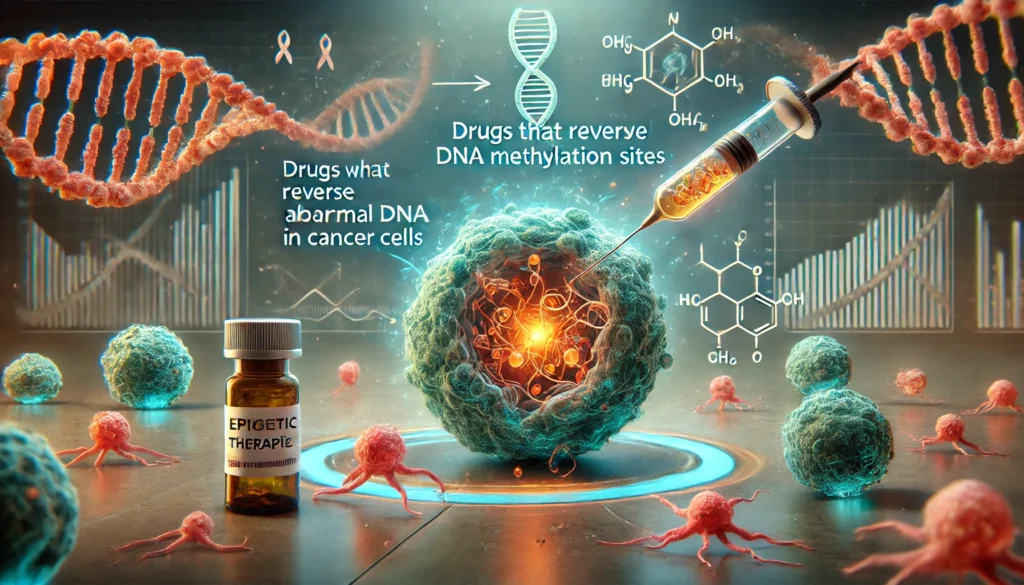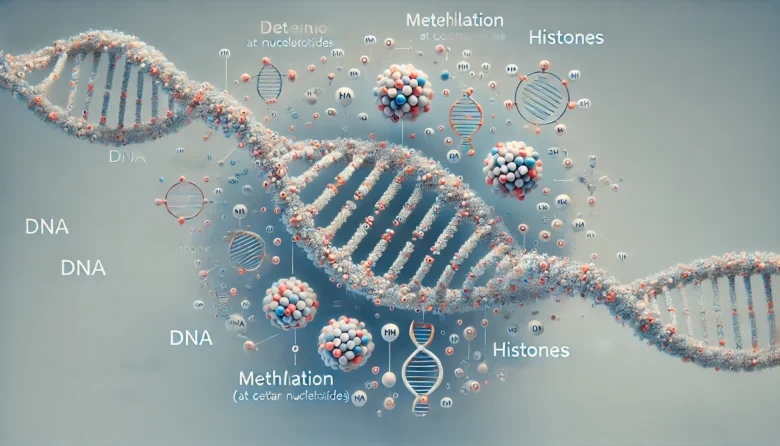Imagine if your genes were like the keys on a piano. Each key holds a unique note (or instruction), but how the music is played—the tempo, dynamics, or whether a note is struck at all—depends on the pianist. In the world of biology, epigenetics is the “pianist” that controls how your genes are expressed. It’s not about changing the underlying genetic code but rather how the environment, lifestyle, and various external factors influence which genes get turned “on” or “off.” So, what exactly is the role of epigenetics in gene expression, and why is it crucial for understanding how our bodies function?
What Is Epigenetics?
To understand epigenetics, let’s break down the term. Epi- means “above” or “over,” and genetics refers to our genes. Essentially, epigenetics refers to modifications that occur above the genetic level. These changes can affect how genes work without altering the DNA sequence itself. It’s a bit like editing a movie without changing the script.
One of the most fascinating aspects of epigenetics is that these changes can be influenced by factors such as diet, stress, pollutants, and even social interactions. As a result, epigenetic modifications are a dynamic and powerful way our bodies respond to the environment, sometimes passing these changes to future generations.
How Does Epigenetics Influence Gene Expression?
Now, let’s dive into the main point: how epigenetics controls gene expression. Genes are sequences of DNA that code for proteins, which perform a wide array of functions in the body. However, not every gene is active at all times. Some genes are like background actors on a film set—only coming into play when necessary. Epigenetics decides which genes should step into the spotlight and which should remain backstage.

There are two primary mechanisms through which epigenetics regulates gene expression:
DNA Methylation: This is one of the most well-known epigenetic mechanisms. It involves the addition of a methyl group (CH₃) to the DNA molecule, usually at sites called CpG islands (regions rich in cytosine and guanine bases). When these regions are methylated, the associated gene tends to be “silenced,” meaning it’s less likely to be expressed.
Example: Let’s say a gene is responsible for controlling fat metabolism. In someone who leads a sedentary lifestyle, that gene might become methylated, reducing its activity. Over time, this could contribute to weight gain and other metabolic issues.
Histone Modification: Histones are proteins around which DNA is wrapped, like a spool of thread. The way DNA is packed around histones can either tighten or loosen, affecting whether the genes in that region are accessible for transcription (the first step in gene expression). Epigenetic modifications, such as adding acetyl or methyl groups to histones, can alter how tightly or loosely DNA is wrapped.
Case Study: In a study on mice, researchers found that those with low levels of maternal care early in life exhibited increased methylation of certain genes, resulting in heightened stress responses as adults. This demonstrated how early-life experiences could lead to long-term epigenetic changes.
Real-Life Impact of Epigenetics
Epigenetics doesn’t just exist in the lab. It’s deeply woven into our everyday lives, influencing everything from health to behaviour. Here are a few practical examples:
Diet and Epigenetics: What you eat doesn’t just affect your waistline—it can influence your gene expression. Nutrients like folate, vitamin B12, and choline can donate methyl groups, supporting DNA methylation. A nutrient-rich, balanced diet can support healthy gene expression patterns.
Anecdote: Studies have shown that mothers who consume a diet deficient in these nutrients during pregnancy may pass on altered epigenetic marks to their offspring, potentially affecting the child’s risk of diseases later in life.
Exercise and Epigenetics: Physical activity can also induce epigenetic changes. Regular exercise has been shown to reduce the methylation of certain genes involved in muscle growth and metabolism, allowing them to be more active.
Example: A group of individuals engaged in endurance training exhibited changes in the epigenetic regulation of genes responsible for mitochondrial function, leading to improved energy production in cells.
Epigenetics and Mental Health: Stress and trauma can leave lasting epigenetic marks. Researchers have discovered that individuals exposed to chronic stress or traumatic events tend to exhibit changes in genes related to the stress-response system, which can increase susceptibility to anxiety, depression, and other mental health conditions.
Case Study: A study on Holocaust survivors and their children found that trauma-induced epigenetic changes were passed down to subsequent generations. The children of survivors displayed alterations in stress-related gene expression, even though they were not directly exposed to the trauma themselves.
Epigenetics in Disease: Friend or Foe?
Epigenetics plays a dual role when it comes to disease—it can be both protective and harmful, depending on the context.
Cancer: In some cancers, abnormal DNA methylation patterns silence tumour suppressor genes, allowing cancer cells to proliferate unchecked. However, understanding these patterns has also opened the door to epigenetic therapies, where drugs are used to reverse these harmful modifications.
Autoimmune Disorders: Epigenetics may also play a role in autoimmune diseases like lupus or multiple sclerosis. Some researchers believe that environmental factors such as infections or toxins trigger epigenetic changes that cause the immune system to attack the body’s own tissues.
Diabetes: Epigenetic modifications related to poor diet or lack of exercise have been linked to the development of type 2 diabetes. By reversing these habits, it may be possible to improve or even prevent the condition.
The Future of Epigenetics: What Lies Ahead?
The study of epigenetics is still relatively new, but its potential is enormous. From personalized medicine to a better understanding of inherited traits and diseases, the future of epigenetics could reshape how we approach health and wellness.
Call to Action: As science continues to uncover the mysteries of epigenetics, we have the power to make positive changes in our lives. By adopting healthier lifestyles, managing stress, and focusing on well-being, we can influence our gene expression in ways that may benefit not only ourselves but future generations.
Author’s Note:
As someone passionate about understanding how our environment shapes us at the deepest level, I find epigenetics to be one of the most exciting fields in modern biology. It’s a reminder that while our genes may set the stage, we play a significant role in the performance of our own lives.
G.C., Ecosociosphere contributor.
References and Further Reading:
- Goulet, D. O., & Holder, A. (2011). Computational Biology and Bioinformatics: Applications in Operations Research. Wiley Encyclopedia of Operations Research and Management Science. https://doi.org/10.1002/9780470400531.eorms1106
- Nature – The Role of Epigenetics in Health and Disease
- Is 15 mg prednisone considered a high dose?. https://topdollsites.com/shop/prednisone/is-15-mg-prednisone-high.html
- Zampieron, E. R., & Kamhi, E. (2012). Natural Support for Autoimmune and Inflammatory Disease. Journal of Restorative Medicine. https://doi.org/10.14200/jrm.2012.1.1003




